I have simple weighted graph. I know how to find shortest route (in terms of hops) and I know how to find shortest route by weight. I need to find shortest route by weight, but I also need to limit how many hops are allowed. Is it possible with neo4j?
Update
current dataset:
MERGE (a:Loc {name:"A"})
MERGE (b:Loc {name:"B"})
MERGE (c:Loc {name:"C"})
MERGE (d:Loc {name:"D"})
MERGE (e:Loc {name:"E"})
MERGE (f:Loc {name:"F"})
MERGE (a)-[:ROAD {cost:50}]->(b)
MERGE (a)-[:ROAD {cost:50}]->(c)
MERGE (a)-[:ROAD {cost:100}]->(d)
MERGE (b)-[:ROAD {cost:40}]->(d)
MERGE (c)-[:ROAD {cost:40}]->(d)
MERGE (c)-[:ROAD {cost:80}]->(e)
MERGE (d)-[:ROAD {cost:30}]->(e)
MERGE (d)-[:ROAD {cost:80}]->(f)
MERGE (e)-[:ROAD {cost:40}]->(f);
Current code:
MATCH (start:Loc{name:'A'}), (end:Loc{name:'F'})
CALL algo.kShortestPaths.stream(start, end, 40, 'cost' ,{})
yield nodeIds, costs
RETURN [node in algo.getNodesById(nodeIds) | node.name] AS places,
costs,
reduce(acc = 0.0, cost in costs | acc + cost) AS totalCost
Right now the code returns:
What I need to do is: I need to get from A to F with max 3 hops. Therefore I actually need only third row from results, first two are not important for me since they both have 4 hops.
